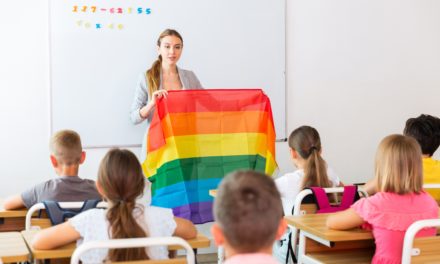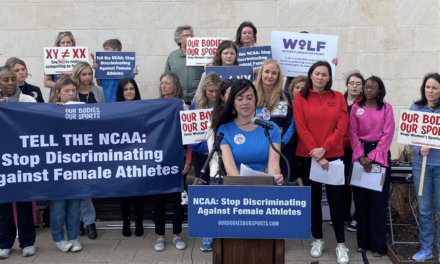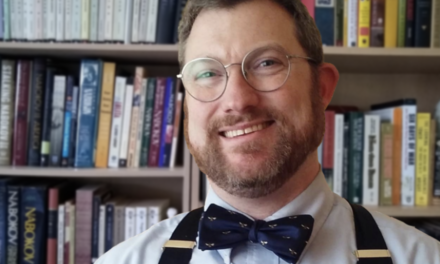The past two years saw a flurry of educational choice initiatives passed in two dozen states, giving more parents the tools they need to provide the education best suited for their children.
Polls consistently show that most voters support educational freedom, with the American Federation for Children (AFC) reporting that 73% of parents support school choice programs. Legislators have responded by creating or expanding programs for educational savings accounts, tax credit scholarships, vouchers, and charter schools, and several states have already put forward legislation to keep the momentum going in 2023.
Last year in Iowa, the Senate passed a bill codifying parental rights in education and establishing “Student First Scholarships,” where families could receive 70% of public school per-pupil spending. The bill died in the House.
So Governor Kimberly Reynolds went on the offensive, supporting school choice candidates in primaries against legislators, supported by teachers unions, who opposed educational freedom. Her candidates prevailed in several districts.
Reynolds said she opposed the incumbents, “Just because of the gut-wrenching stories I hear from parents and what their kids are being subjected to. And they really just want a quality education.”
With more support in her corner, she said in her Condition of the State address “that her first priority is ‘making sure that every child is provided with a quality education that fits their needs,’” the Washington Examiner reported.
“Every child is an individual who deserves an education tailored to their unique needs, and parents are in the best position to identify the right environment,” the governor added.
Her proposal, House File 68 and Senate File 94, creates educational savings accounts where families could access almost $7,600 in state funds “for private school tuition, tutoring, textbooks, curricular materials, special-needs therapy, and more.” The money comes from the state’s portion of per-pupil spending in Iowa public schools.
The bill is making its way through the state legislature, having already been approved by the House Education Reform Committee and the Senate Education Committee, the Iowa Capital Dispatch reported.
In Utah, lawmakers introduced HB 215, legislation that offers teachers a $6,000 raise and establishes the Utah Fits All Scholarship Program. The new initiative provides $8,000 Education Savings Accounts for qualified students to attend private schools.
The measure passed the Utah House January 20 by a vote of 54 to 20. AFC COO Elisa Clements applauded the bill’s progress in a press release:
The American Federation for Children congratulates the Utah House of Representatives for putting the needs of children first. This expansive program will create opportunities for thousands of Utah families to customize the education for their children and allow them to thrive.
As a longtime Utah resident and advocate for educational options, I could not be more thrilled to see this important legislation progress.
In Oklahoma, with a legislative session that opens on February 1, two bills were filed that increase educational freedom in the state.
“Senate Bill 822 would provide parents the option of tapping into a portion of their child’s education dollars to pay for a variety of education services, including tuition,” Fox News in Oklahoma City reported.
The bill establishes the Oklahoma Education Freedom Account Program. Parents could apply for an account “to receive funds equal to what a public school district would receive to educate that student” and it increases funding for smaller districts in the state, the Tulsa World explained.
The news outlet continued, “Senate Bill 943 is similar, but it stipulates students in counties with fewer than 10,000 residents could only qualify for a voucher if they attend a ‘trigger’ school district.”
“Trigger districts” are defined as those which engage in problematic teaching. Among other issues, the bill lists districts which have employees or volunteers “engaged in anthropomorphic behavior commonly referred to as furries”; have sexual curriculum or obscene books; instruct children in “gender identity and sexual orientation”; promote climate change, “social and emotional learning” or animal rights activism; promote Marxist ideology; or offer “instruction that disparages the Second Amendment.”
Oklahoma Superintendent Ryan Walters supported the expansion of school choice, stating, “Every option is on the table to make our education system better. We must innovate and advocate for change at all levels in education.”
The Florida State Legislature convenes even later, on March 7, but Speaker of the House Paul Renner has already announced that House Bill 1, “An act relating to school choice,” was already filed, on January 19.
He tweeted that school choice began in the state 25 years ago, but now it was time to expand the initiative.
Almost 25 years ago, under the direction of Gov. @JebBush, Florida became a leader in educational freedom and opportunity by starting the school choice movement. It's time to finish the job. The Florida House is dedicated to expanding choice to every student in Florida. (1/2)
— Paul Renner (@Paul_Renner) January 19, 2023
HB 1, filed today by Chair @KayleeTuck2, marks the largest expansion of school choice in the history of our state. Once again, Florida leads the way in empowering parents by giving them the ability to make informed decisions about their child's education. (2/2)
— Paul Renner (@Paul_Renner) January 19, 2023
Florida Politics reported:
If the bill passes, a family of four with an income of more than $104,063 per year would be eligible for scholarships worth $7,250 to $7,850 per student. The bill, though, will keep the priority for handing out scholarships in current law that are given to households making less than 185% of the federal poverty level, or $51,338 per year for a family of four.
Moreover, the bill allows parents who home-school their children to be paid under the scholarship program, although that’s limited to 10,000 students.
With some schools adopting harmful policies and promoting radical ideologies, educational freedom has become more important than ever before. School choice offers competition to public schools and gives parents opportunities to educate their children with their values and principles, finding the best environment for them.
Related articles and resources:
BLM at School Week – Indoctrinating and Training Radical Activist Children
Breaking News: Florida ‘Parental Rights in Education’ Bill Signed Into Law
‘Critical Social Justice’ in Education – If it Can Happen in Idaho, It Can Happen Anywhere
Is ‘Critical Race Theory’ Being Taught in Public Schools? CRT Deniers Claim it Isn’t
Photo from Shutterstock.






